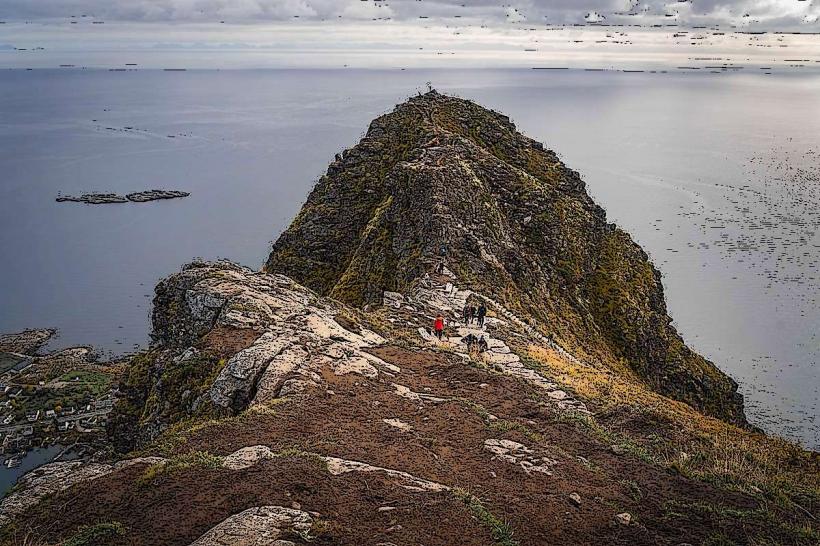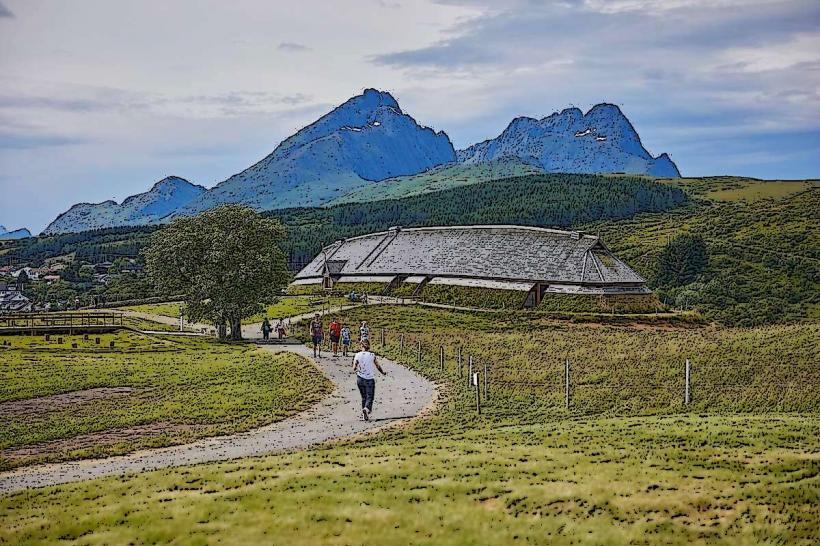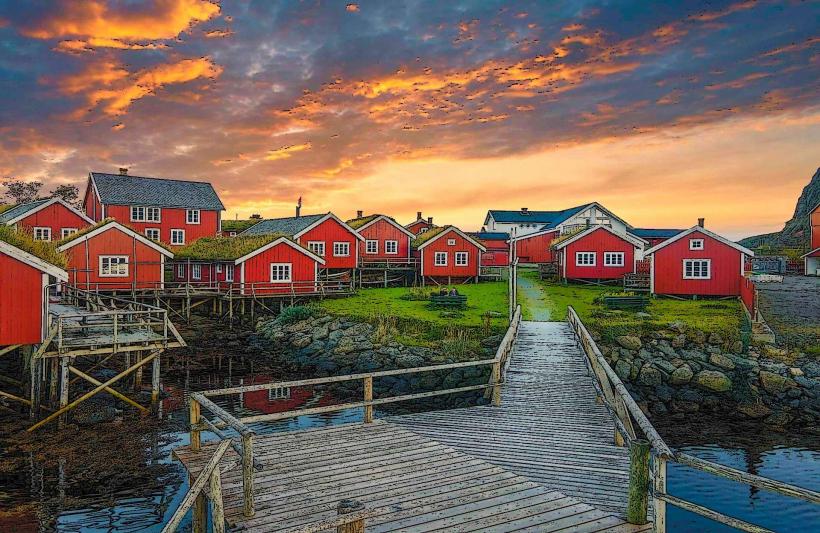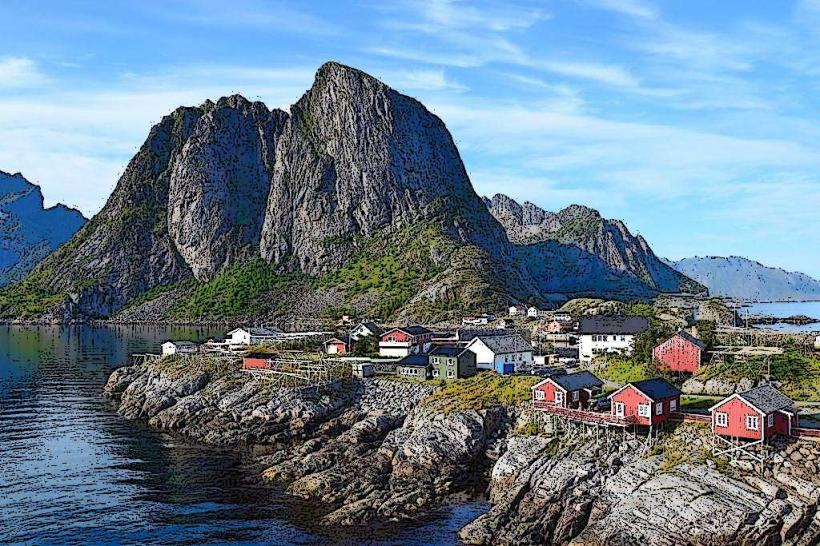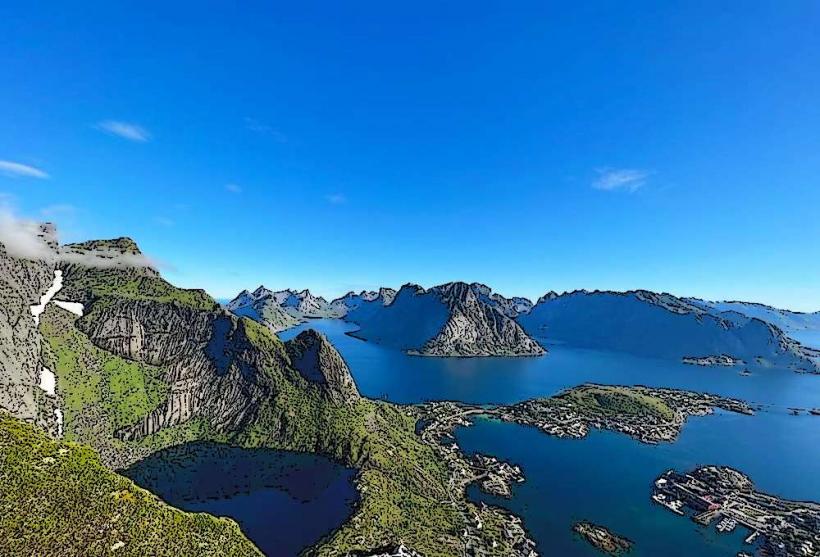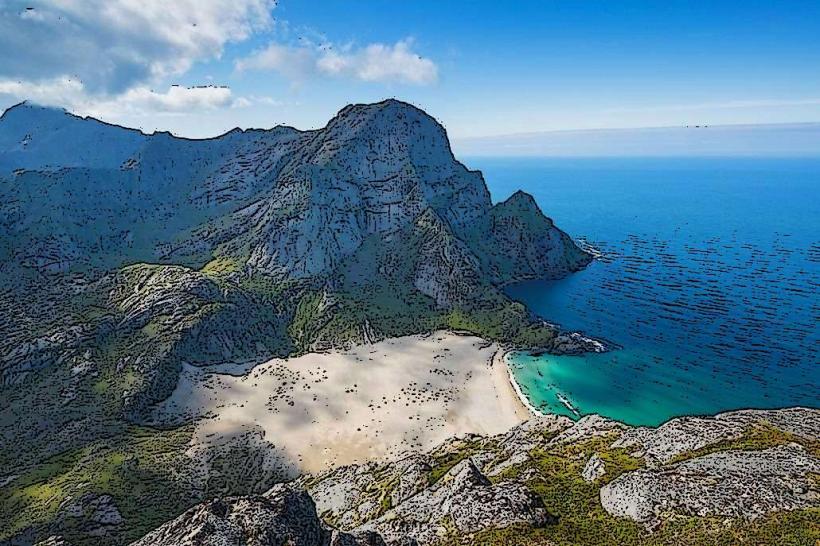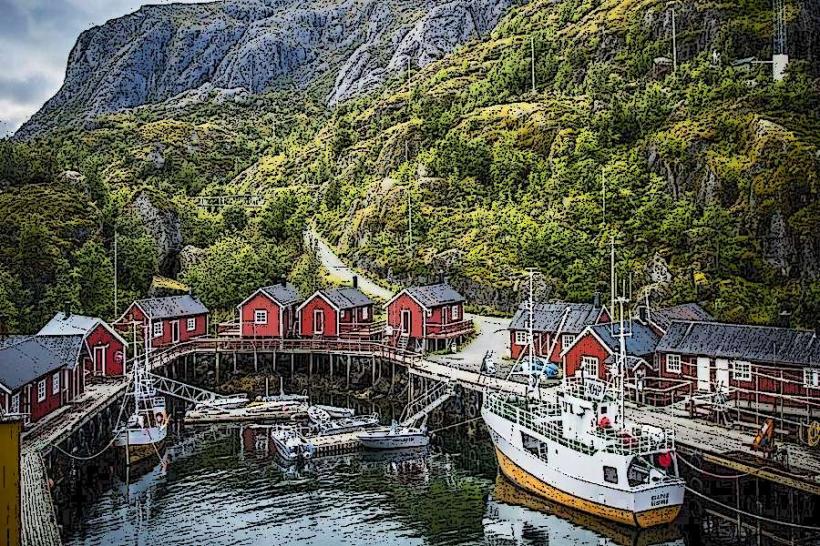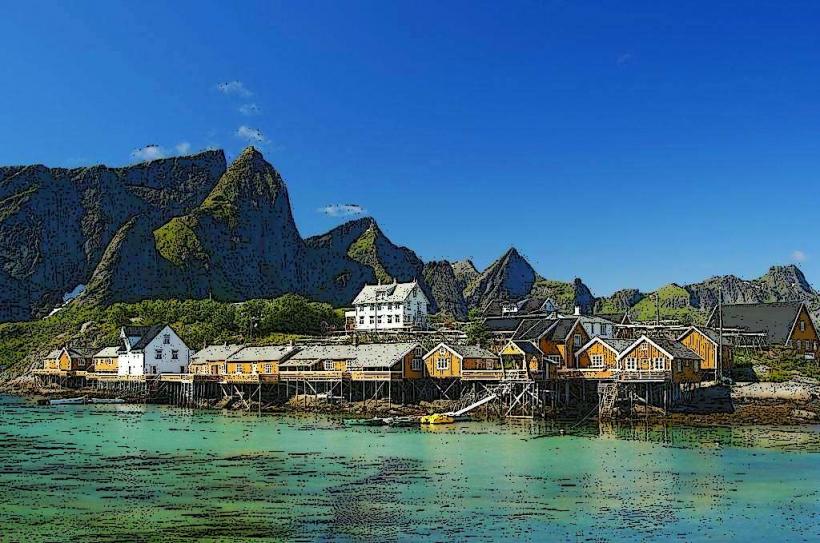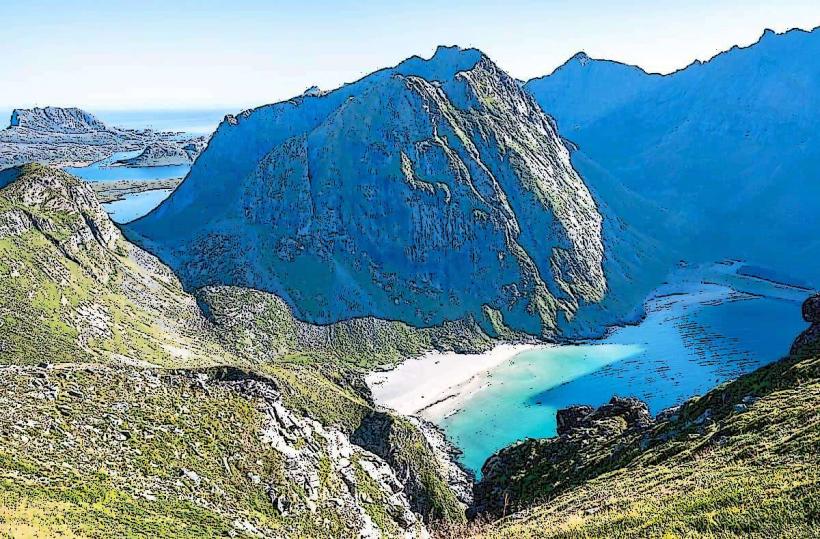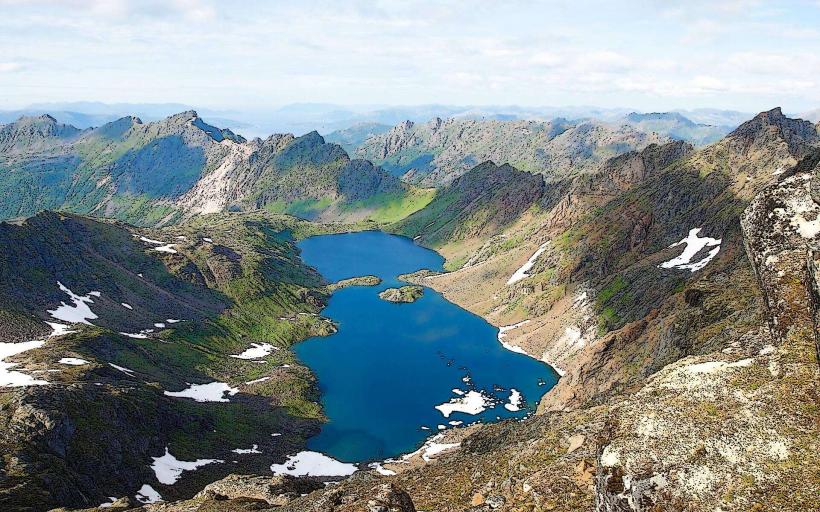Information
Landmark: Lofoten IslandsCity: Reine
Country: Iceland
Continent: Europe
Lofoten Islands, Reine, Iceland, Europe
The Lofoten Islands are an archipelago situated off the coast of Nordland county, Norway. Reine is a prominent fishing village located on the island of Moskenesøya within this archipelago.
Visual Characteristics
The landscape is characterized by dramatic, jagged granite peaks that rise directly from the Norwegian Sea, interspersed with deep fjords and sheltered bays. White-sand beaches are present in various coves. The architecture features traditional red and white fishermen's cabins, known as rorbuer, often built on stilts over the water. Vegetation is sparse, consisting primarily of hardy birch and pine trees, heather, and grasses on lower slopes. The water is typically clear, exhibiting deep blue or greenish-blue hues.
Location & Access Logistics
Reine is located on the island of Moskenesøya, approximately 5 kilometers west of Hamnøy and 10 kilometers west of Sakrisøy. Access is primarily via the E10 highway, which traverses the Lofoten archipelago. Limited designated parking areas are available within Reine village, often requiring payment during peak season. Public bus services connect Reine with other Lofoten villages and the ferry terminal at Moskenes. A car ferry operates from Bodø to Moskenes (approximately 3-4 hours), followed by a short drive to Reine. The nearest airports are Leknes (LKN) and Svolvær (SVJ), requiring subsequent car rental or bus transfer.
Historical & Ecological Origin
The Lofoten Islands are geologically formed from ancient Precambrian bedrock, which has been uplifted and extensively sculpted by glacial erosion during successive Ice Ages, resulting in characteristic U-shaped valleys and sharp, pointed peaks. Ecologically, the region experiences a subarctic oceanic climate, significantly influenced by the Gulf Stream, which supports a rich marine ecosystem. Human settlement in villages like Reine dates back centuries, historically sustained by the abundant cod fisheries.
Key Highlights & Activities
Hiking opportunities include trails to Reinebringen for panoramic views, as well as routes to Ryten and Kvalvika Beach. Kayaking tours and rentals are available for exploring the fjords and coastline. Deep-sea fishing trips target species such as cod, halibut, and pollock. The area is a prime location for landscape photography, particularly views of Reinefjord and the surrounding mountains. Boat tours offer excursions to destinations like Trollfjord or exploration of smaller islands.
Infrastructure & Amenities
Public restrooms are available in Reine village, typically located near the harbor or visitor information points. Natural shade is limited due to the open landscape, with some shelter provided by buildings. Cell phone signal coverage (4G/5G) is generally reliable in Reine and along the E10 highway. Several restaurants, cafes, and a small grocery store operate within the village. Accommodation options include traditional rorbuer, guesthouses, and a campsite.
Best Time to Visit
Summer, from June to August, offers the Midnight Sun phenomenon, mildest temperatures (10-20°C), and optimal conditions for hiking and outdoor activities, coinciding with peak tourist season. Winter, from December to March, is ideal for Northern Lights viewing, featuring snow-covered landscapes and colder temperatures (-5 to 5°C) with shorter daylight hours. Shoulder seasons (April-May, September-November) present fewer crowds and variable weather, suitable for photography. For photography, early morning or late evening during summer provides soft, favorable light on the mountains; clear winter nights are best for capturing the Northern Lights.
Facts & Legends
Reine was recognized as "the most beautiful village in Norway" by a prominent Norwegian magazine in the 1970s. A local legend describes the Huldra, a mythical forest creature with a cow's tail, occasionally seen luring travelers deeper into the mountains. A practical tip for visitors is to commence the hike to Reinebringen very early in the morning to experience fewer crowds.
Nearby Landmarks
- Hamnøy: 0.5km East
- Sakrisøy: 1.5km East
- Å i Lofoten: 10km Southwest
- Nusfjord Arctic Resort: 25km Northeast
- Moskenes Ferry Terminal: 5km Southwest

